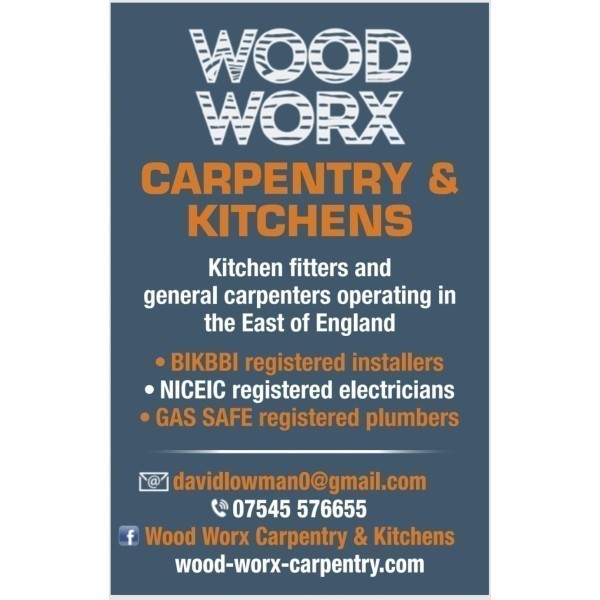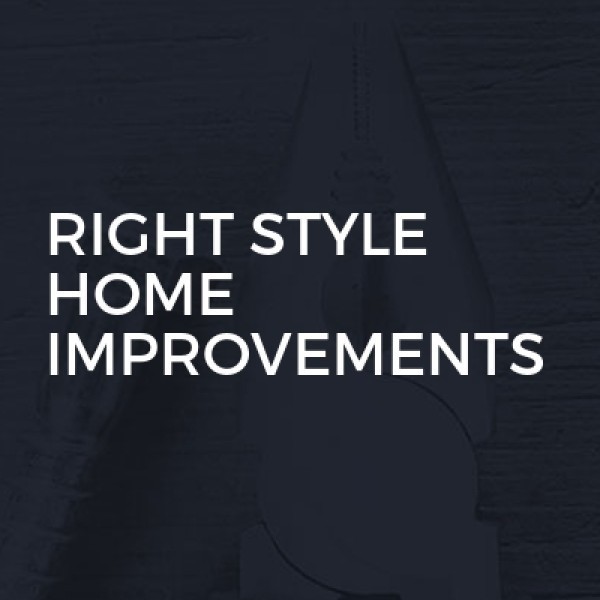Loft Conversions in Wickham Market
Filter your search
Post your job FREE and let trades come to you
Save time by filling out our simple job post form today and your job will be sent to trades in your area so you can sit back, relax and wait for available trades to contact you.
Post your job FREESearch Loft Conversions in places nearby
Understanding Loft Conversions in Wickham Market
Loft conversions in Wickham Market are becoming increasingly popular as homeowners seek to maximise their living space without the hassle of moving. This charming Suffolk village offers a unique blend of historical architecture and modern living, making it an ideal location for such home improvements. In this article, we'll explore the ins and outs of loft conversions, providing you with a comprehensive guide to transforming your attic into a functional and stylish space.
The Benefits of Loft Conversions
Loft conversions offer numerous benefits, making them a worthwhile investment for many homeowners. Firstly, they can significantly increase the value of your property, often by more than the cost of the conversion itself. Additionally, they provide extra living space, which can be used for a variety of purposes, such as a bedroom, office, or playroom. This added space can enhance your quality of life, offering a private retreat or a practical solution for a growing family.
Increased Property Value
One of the most compelling reasons to consider a loft conversion is the potential increase in property value. In Wickham Market, where space is at a premium, adding an extra room can make your home more attractive to potential buyers. According to property experts, a well-executed loft conversion can add up to 20% to the value of your home, making it a smart financial move.
Additional Living Space
Whether you need an extra bedroom, a home office, or a playroom for the kids, a loft conversion can provide the additional space you need. This flexibility is particularly valuable in Wickham Market, where traditional homes may not have the open-plan layouts found in newer builds. By converting your loft, you can create a bespoke space tailored to your specific needs.
Types of Loft Conversions
There are several types of loft conversions to consider, each with its own advantages and suitability depending on your home's structure and your personal preferences. The most common types include dormer, hip-to-gable, and mansard conversions. Understanding the differences between these options can help you make an informed decision about which is best for your home.
Dormer Loft Conversions
Dormer conversions are one of the most popular choices for homeowners in Wickham Market. This type of conversion involves extending the existing roof to create additional headroom and floor space. Dormers are versatile and can be added to most types of homes, making them a practical choice for many properties.
Hip-to-Gable Loft Conversions
Hip-to-gable conversions are ideal for homes with a hipped roof, where the roof slopes on all sides. This type of conversion involves extending the sloping side of the roof to create a vertical gable wall, providing more internal space. Hip-to-gable conversions are particularly popular in semi-detached and detached homes in Wickham Market.
Mansard Loft Conversions
Mansard conversions are the most extensive type of loft conversion, involving significant alterations to the roof structure. This type of conversion creates a flat roof with steeply sloping sides, maximising the available space. Mansard conversions are often used in terraced houses, where space is limited, and are a common sight in urban areas like Wickham Market.
Planning Permission and Building Regulations
Before embarking on a loft conversion in Wickham Market, it's essential to understand the planning permission and building regulations that may apply. While some loft conversions can be completed under permitted development rights, others may require formal planning permission. Additionally, all conversions must comply with building regulations to ensure they are safe and structurally sound.
Permitted Development Rights
In many cases, loft conversions can be carried out under permitted development rights, meaning you won't need to apply for planning permission. However, there are specific criteria that must be met, such as the volume of the new space and the height of the roof. It's important to check with your local planning authority to confirm whether your project qualifies for permitted development.
Building Regulations Compliance
Regardless of whether planning permission is required, all loft conversions must comply with building regulations. These regulations cover aspects such as structural integrity, fire safety, insulation, and ventilation. Working with a qualified architect or builder can help ensure your conversion meets all necessary standards.
Choosing the Right Professionals
Choosing the right professionals to carry out your loft conversion is crucial to the success of the project. From architects and builders to interior designers, each plays a vital role in bringing your vision to life. In Wickham Market, there are numerous experienced professionals who specialise in loft conversions, offering a range of services to suit your needs.
Architects and Designers
An architect or designer can help you plan your loft conversion, ensuring it meets your requirements and complies with all regulations. They can provide detailed drawings and specifications, helping you visualise the finished space. In Wickham Market, many architects have experience with local properties, offering valuable insights into the best design solutions for your home.
Builders and Contractors
Choosing a reputable builder or contractor is essential for a successful loft conversion. Look for professionals with experience in loft conversions and a proven track record of delivering high-quality work. It's also a good idea to ask for references and view previous projects to ensure you're making the right choice.
Cost Considerations
The cost of a loft conversion in Wickham Market can vary significantly depending on the type of conversion, the size of the space, and the materials used. On average, a basic loft conversion can cost between £20,000 and £40,000, while more extensive projects can exceed £50,000. It's important to set a realistic budget and factor in any additional costs, such as planning fees and interior furnishings.
Budgeting for Your Loft Conversion
When budgeting for your loft conversion, consider all potential expenses, including design fees, construction costs, and any necessary permits. It's also wise to set aside a contingency fund to cover any unexpected expenses that may arise during the project. By planning carefully, you can ensure your loft conversion stays within budget and meets your expectations.
Financing Options
If you're concerned about the cost of a loft conversion, there are several financing options available. Many homeowners choose to remortgage their property or take out a home improvement loan to cover the costs. It's important to explore all options and choose the one that best suits your financial situation.
Designing Your Loft Space
Designing your loft space is an exciting part of the conversion process, allowing you to create a unique and functional area that reflects your personal style. From choosing the right layout to selecting furnishings and finishes, there are many factors to consider when designing your loft.
Layout and Functionality
The layout of your loft space will depend on its intended use and the available space. Consider how you want to use the area and plan the layout accordingly. For example, if you're creating a bedroom, you'll need to factor in space for a bed, storage, and possibly an en-suite bathroom. If you're designing a home office, consider the placement of desks and storage solutions to maximise productivity.
Furnishings and Decor
Once you've finalised the layout, it's time to choose furnishings and decor that complement the space. Opt for furniture that fits the scale of the room and enhances its functionality. When it comes to decor, consider using light colours and mirrors to create a sense of space and openness. Personal touches, such as artwork and soft furnishings, can add warmth and character to the room.
Maximising Natural Light
Maximising natural light is key to creating a bright and welcoming loft space. There are several ways to enhance the natural light in your loft conversion, from installing skylights to choosing the right window treatments.
Skylights and Windows
Skylights are a popular choice for loft conversions, providing ample natural light and ventilation. They can be installed in various configurations to suit the design of your space. Additionally, consider adding windows to gable walls or dormers to further increase the amount of natural light.
Window Treatments
Choosing the right window treatments can also impact the amount of natural light in your loft. Opt for light, airy fabrics that allow light to filter through while providing privacy. Avoid heavy curtains or blinds that can block out light and make the space feel smaller.
Ensuring Energy Efficiency
Energy efficiency is an important consideration for any loft conversion, helping to reduce energy bills and minimise your environmental impact. There are several ways to improve the energy efficiency of your loft space, from insulation to energy-efficient lighting.
Insulation and Ventilation
Proper insulation is essential for maintaining a comfortable temperature in your loft space and reducing energy consumption. Ensure your loft is well-insulated, particularly in the roof and walls, to prevent heat loss. Additionally, consider installing ventilation systems to improve air circulation and prevent condensation.
Energy-Efficient Lighting
Choosing energy-efficient lighting can also help reduce energy consumption in your loft. LED lights are a popular choice, offering long-lasting, low-energy illumination. Consider installing dimmer switches to control the brightness and create a cosy atmosphere.
Addressing Common Challenges
While loft conversions offer many benefits, they can also present certain challenges. From structural issues to planning constraints, it's important to be aware of potential obstacles and address them proactively.
Structural Considerations
Structural issues are a common challenge in loft conversions, particularly in older properties. It's essential to assess the structural integrity of your home before starting the conversion, ensuring it can support the additional weight. Working with a structural engineer can help identify any necessary reinforcements or modifications.
Planning and Legal Constraints
Planning and legal constraints can also impact your loft conversion project. Be sure to research local planning regulations and obtain any necessary permits before starting work. Consulting with a planning expert can help navigate the process and ensure compliance with all requirements.
Frequently Asked Questions
- Do I need planning permission for a loft conversion in Wickham Market? In many cases, loft conversions can be completed under permitted development rights, but it's important to check with your local planning authority to confirm.
- How long does a loft conversion take? The duration of a loft conversion can vary depending on the complexity of the project, but most conversions take between 6 to 12 weeks to complete.
- Can I convert any loft space? Not all loft spaces are suitable for conversion. Factors such as head height, roof structure, and access must be considered to determine feasibility.
- What is the cost of a loft conversion in Wickham Market? The cost can vary widely, but a basic conversion typically ranges from £20,000 to £40,000, with more extensive projects costing more.
- Will a loft conversion add value to my home? Yes, a well-executed loft conversion can add significant value to your property, often increasing its value by up to 20%.
- How can I ensure my loft conversion is energy efficient? Proper insulation, energy-efficient lighting, and ventilation systems can help improve the energy efficiency of your loft space.
Loft conversions in Wickham Market offer a fantastic opportunity to enhance your home, providing additional space and increasing property value. By understanding the different types of conversions, planning requirements, and design considerations, you can create a beautiful and functional loft space that meets your needs and complements your lifestyle.













